Last week was A11y Camp, which was excellent as usual. I watched a lot of talks and took notes for some of them. Here are my sketchnotes (with text alternative immediately after them) and my top three takeaways.
My personal top three takeaways
- Become more aware of my biases (because they create barriers to access)
- Help people employ a healthy level of scepticism about assuming things are accessible (so that they test more thoroughly)
- Think more about learning pathways (to keep people engaged)
My notes from a few of the talks
Eloise Cleary and Samuel Yu - The I in Inclusion (video on YouTube)
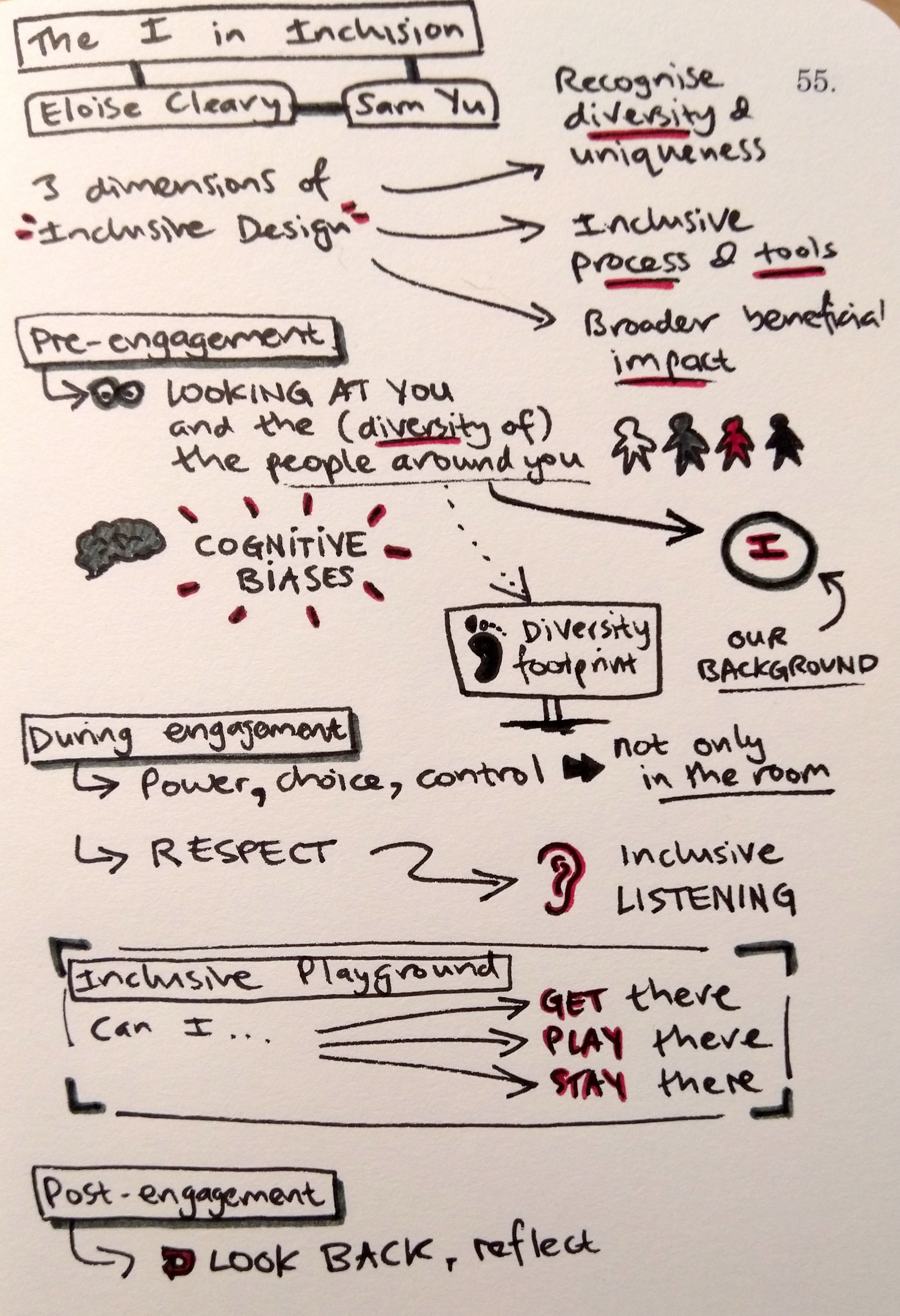
Text version of sketchnotes for "Eloise Cleary and Samuel Yu - The I in Inclusion"
- 3 dimensions of Inclusive Design
- Recognise diversity and uniqueness
- Inclusive process and tools
- Broader beneficial impact
- Pre-engagement
- Looking at you and the (diversity of the) people around you. Diversity footprint.
- Cognitive biases
- Our background and the people around us make up who we are
- During engagement
- Power, choice, control. Not only in the room.
- Respect. Inclusive Listening.
- Post-engagement
- Look back, reflect
- Inclusive Playground
- Can I get there?
- Can I play there?
- Can I stay there?
Josh Goldberg - Accessible Accessibility (video on YouTube)
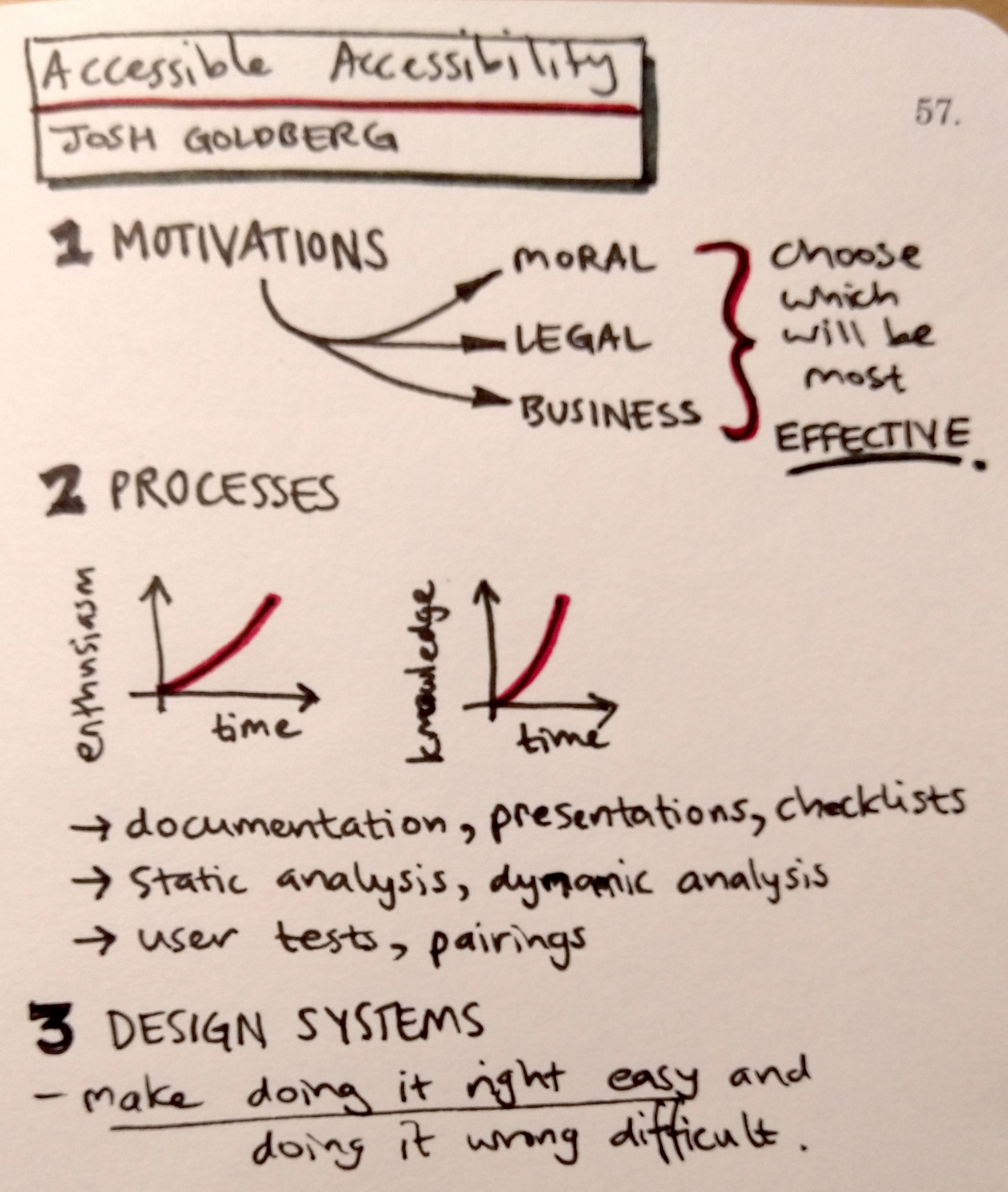
Text version of sketchnotes for "Josh Goldberg - Accessible Accessibility"
- 1 Motivations
- Moral, Legal, Business
- Choose which will be most effective
- 2 Processes
- Enthusiasm and knowledge increase over time
- documentation, presentations, checklists
- static analysis, dynamic analysis
- user tests, pairings
- 3 Design Systems
- Make doing it right easy and doing it wrong difficult
Allison Ravenhall - Don’t believe the hype (video on YouTube)
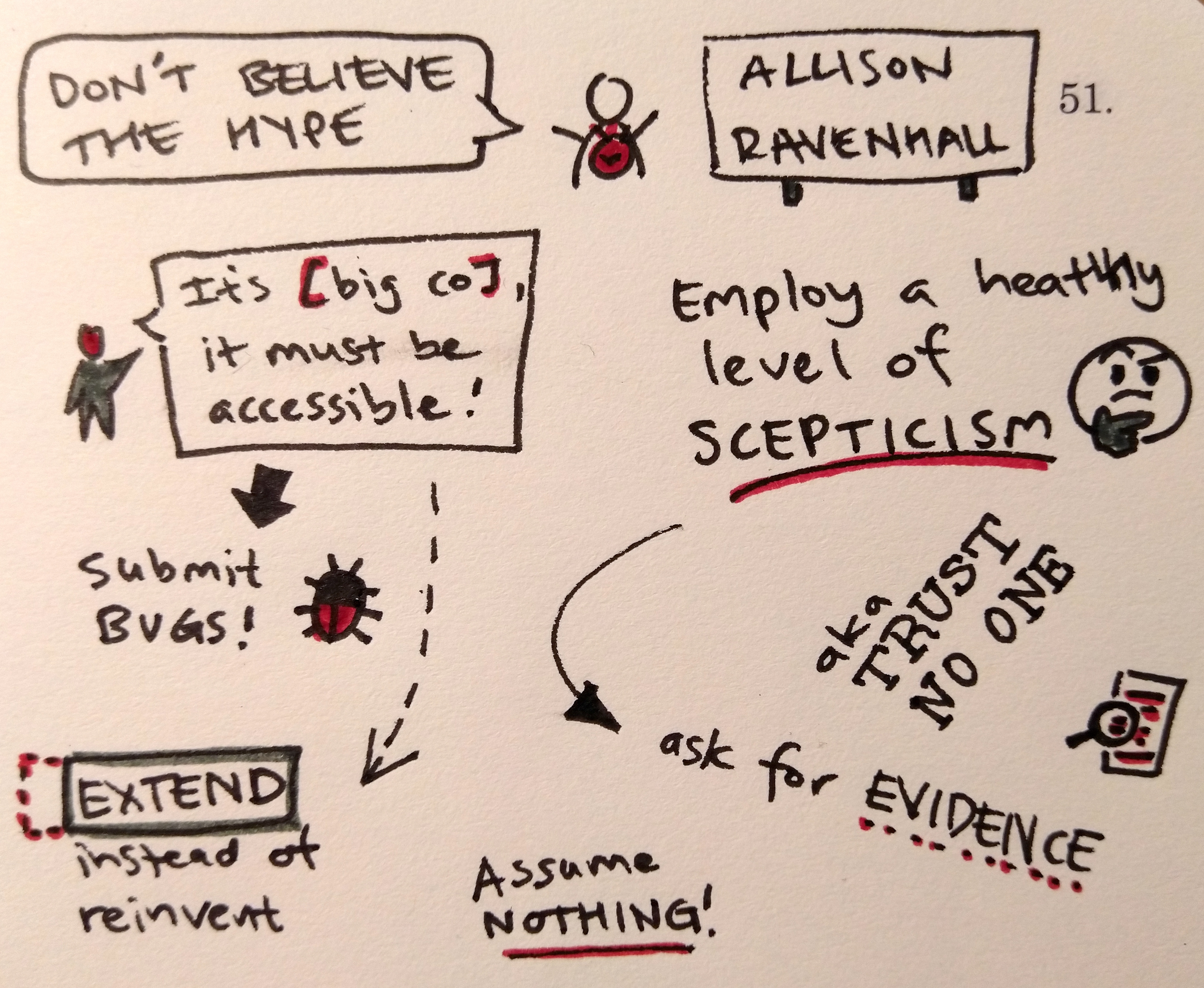
Text version of sketchnotes for "Allison Ravenhall - Don't believe the hype"
- “It’s {big co}, it must be accessible!” is seldom true. They’re teams of people (that can make mistakes), just like us.
- submit bugs
- extend instead of reinvent
- Employ a healthy level of scepticism (aka Trust No One)
- Ask for evidence
- Assume nothing
Zoë Rose - Accessibility for bad guys (video on YouTube)
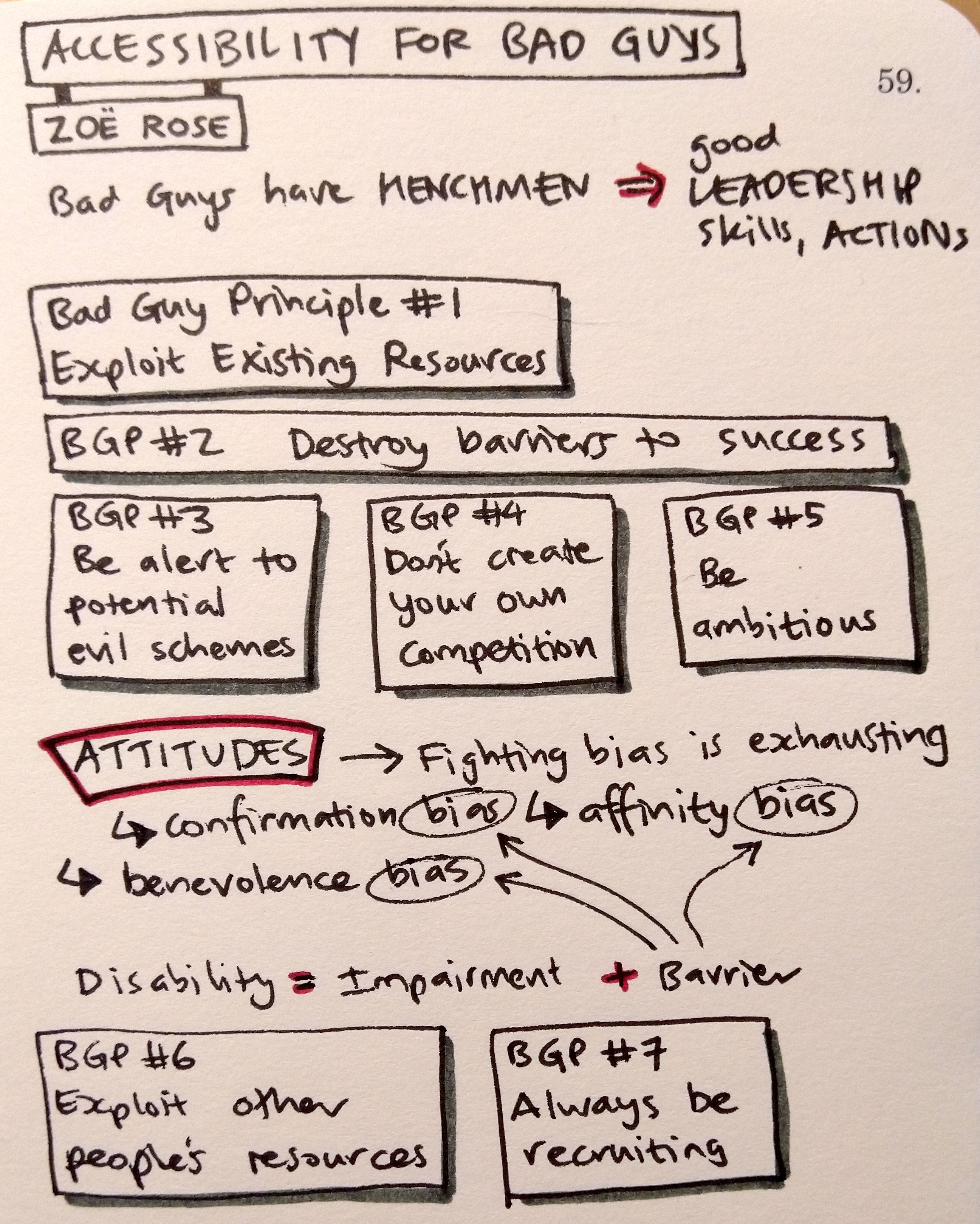
Text version of sketchnotes for "Zoë Rose - Accessibility for bad guys"
- Bad guys have henchmen, so they have good leadership skills, and are good at actions
- Bad Guy Principle (BGP) #1: exploit existing resources
- BGP #2: destroy barriers to success
- BGP #3: be alert to potential evil schemes
- BGP #4: don’t create your own competition
- BGP #5: be ambitious
- BGP #6: exploit other people’s resources
- BGP #7: always be recruiting
- Attitudes. Fighting bias is exhausting
- Confirmation bias
- Affinity bias
- Benevolence bias
- Disability = Impairment + Barrier. Biases create barriers.
Sagar Barbhaya - Expand Your Outreach with an Accessibility Champions Program (video on YouTube)
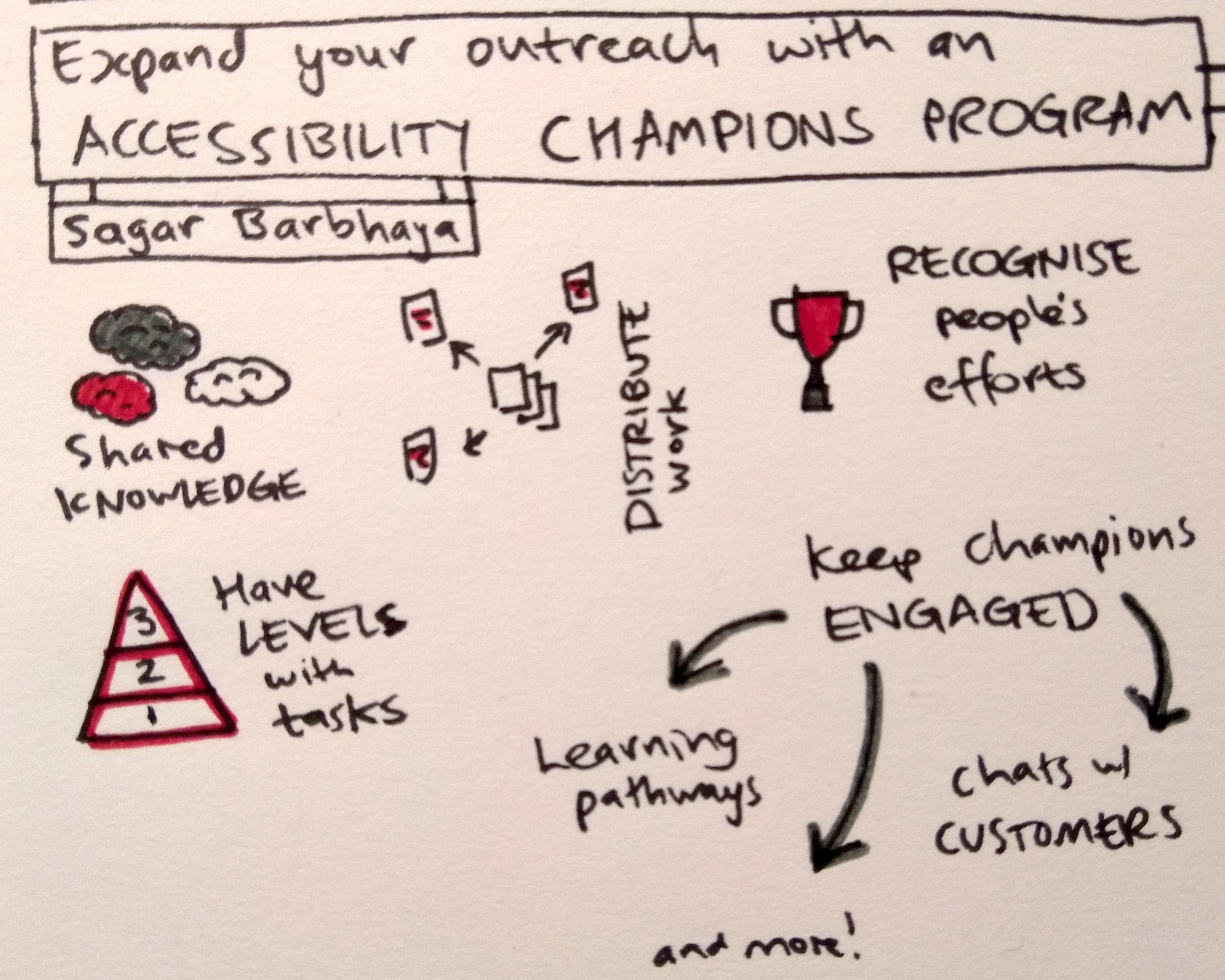
Text version of sketchnotes for "Sagar Barbhaya - Expand Your Outreach with an Accessibility Champions Program"
- Shared knowledge
- Distribute the work
- Recognise people’s achievements
- Have champion levels, with specific tasks
- Keep champions engaged
- Learning pathways
- Chats with customers
- and more!
Frankie Balfour - How to get large organisations to prioritise accessibility (video on YouTube)
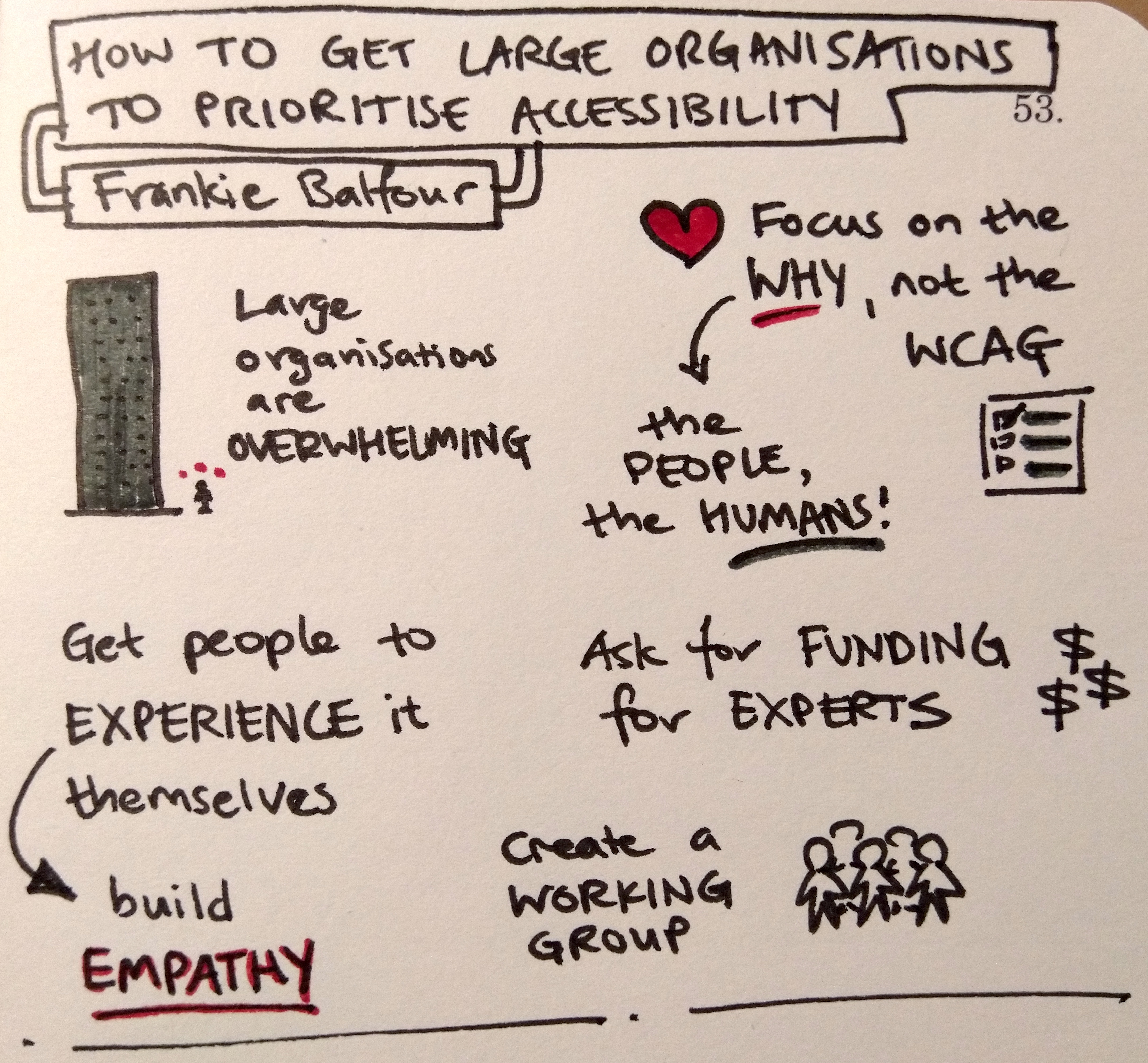
Text version of sketchnotes for "Frankie Balfour - How to get large organisations to prioritise accessibility"
- Large organisations are overwhelming
- Focus on the why, not the WCAG: the people, the humans!
- Get people to experience it themselves to build empathy
- Ask for funding for experts
- Create a working group